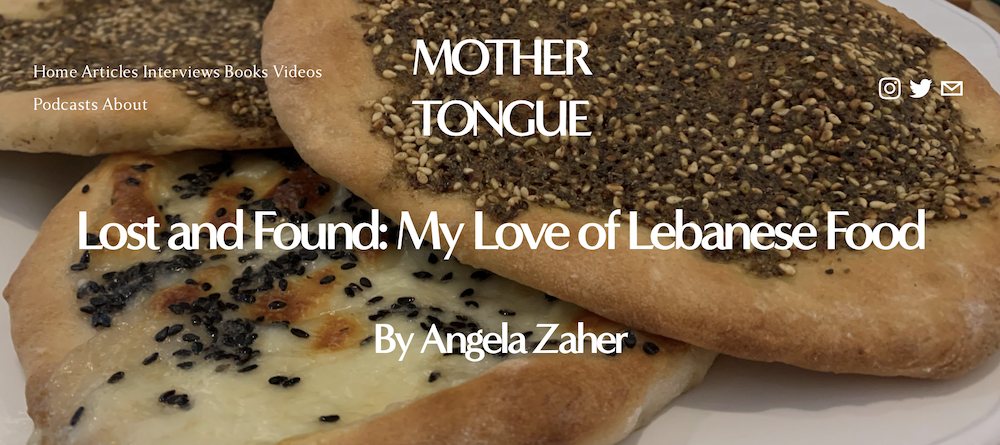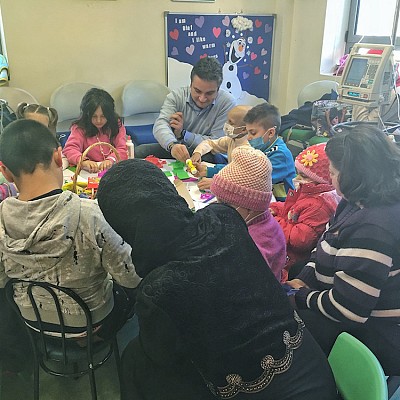My relationship with Lebanese food, the cuisine of my birth and early childhood, has evolved dramatically over the years. We have been through highs and lows before finally finding harmony as I approach my half century.
In Beirut our lives revolved around the big family meals that my mother would prepare daily, always making more for the unexpected guests who might drop in. The dining room table would be laden with colourful dishes which were noisily passed around. Several nights a week, I would go to bed listening to that lullaby of happy gatherings and the ever present drumming symphony of the backgammon table. But then we moved to Brussels when I was at the start of my teenage years. My mother continued to cook Lebanese food for us and in the same quantities she had done in Lebanon but day in day out there were only four of us. No one dropped by. Leftovers would last for days, we were strongly encouraged to have second and third helpings to clear the surplus and a negative response would upset her. Consequently, I was putting on weight and blamed our way of eating and what we ate for that. I started resenting Lebanese cuisine, resisting its pull. When I went to a new friend’s house, dinner was brought to the table already served on the plate, consumed in minutes and seconds were rarely offered or requested. At home, we would stay at the table for interminable hours, ripping up loaves of Arabic bread and scooping up dips from their bowls until they were wiped clean. All I wanted was to be the same as everyone else yet every time we sat down to dinner, I was reminded how different my family was. I couldn’t wait to leave home and be free of the shackles of endless family meals and Lebanese food.
At university, I relished the control I finally had over my diet. I was in Cardiff in the 1990’s- delightfully lacking in Lebanese restaurants or cafes. At a good distance from Lebanese food, or so I reasoned, the extra weight started to fall off. My independent life carried on when I moved to London for work. The kitchens in the shared rentals I lived in were the least frequented rooms. When friends suggested we go out to Lebanese restaurants, I was always reluctant. I explained that they were pricey as you had to order several starters plus mains and it all adds up. I did not want to eat Lebanese food as at the time, I figured that I would put all that weight back on.
I now recognize the shunning of the food of my heritage as part of my strategy for coping with a life away from my family and at times pretty lonely. Eating it would remind me of all I had lost or was missing. When we left Lebanon, I said goodbye to a childhood filled with security, love, and a huge network of support. In Brussels, we were immigrants, we struggled to fit in. Our Sundays in Lebanon when we would either be packing the car for food to take to my Aunt’s house or getting our house ready for all the aunts, uncles and cousins to come over, came to an abrupt end. Sundays in Brussels were at times difficult for my parents. I could see the sadness in their eyes as they planned yet another drive to a scenic destination, pretty but unlikely to be nourishing for the soul like a Sunday buzzing with all of the family around. By the time I left Brussels to come and study in the U.K., our family unit had shrunk again as I lost my father a few months before my final exams at school. All this loss got mixed up in Lebanese food. If I kept away from it, I wouldn't have to deal with all of the emotions connected to it.
A few years later, I settled down and started my own family. That marked the beginning of a healthy relationship with Lebanese food. I had the love, stability, and security to let it into my life once again. Whereas I struggled to teach my children Arabic, I could teach them about my culture through food. I was ready to comfortably bring back memories of my childhood through the food I made for them and pass on the love I had experienced. Through Lebanese food, I found a way to process the loss and to rebuild a connection to my heritage.
I have also finally understood what a great pleasure it is for a family to sit around the table, eat from shared plates and talk. My teenage sons complain that our meals take too long. These complaints sound somewhat familiar.






































